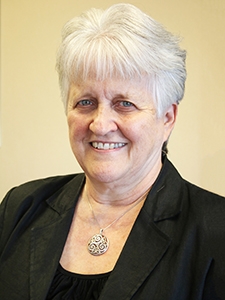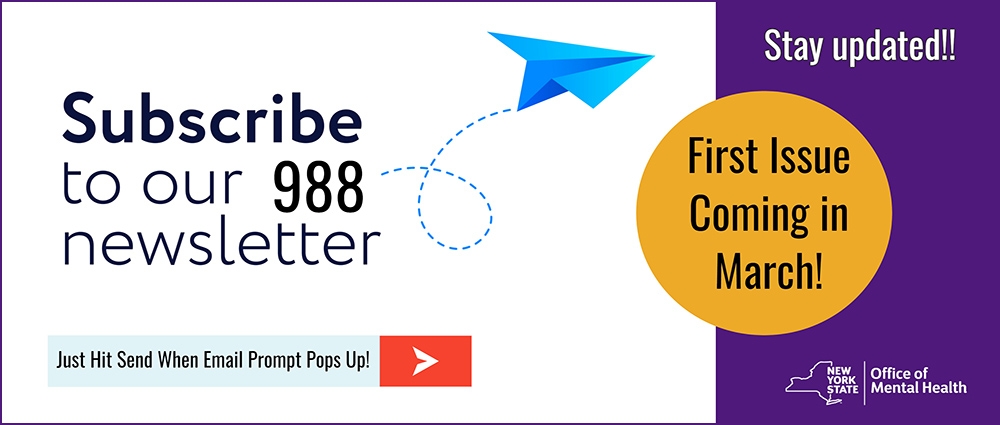When two people have something in common, it creates a bond that allows for meaningful discussions and a trusting relationship. This is the foundation of Peer Support and the reason for its success. Peer professionals share the knowledge, skills, and information they’ve learned from their own experiences living with mental illness to help others reach their recovery goals.

Ann Sullivan, MD
Commissioner, NYS OMH
The work of Peer professionals complements the work done by therapists, case managers, and other members of a treatment team. Numerous research studies have indicated that Peer professionals can play a significant role in improving health and wellness, because of their ability to build trust, form one-to-one relationships, and give hope to others. Peer professionals know what the struggle is like because they’ve overcome the same challenges and can understand the thoughts and feelings of people going through recovery or caring for child with social and emotional challenges.
As the mental health system becomes increasingly more responsive and person-centered, Peer professionals are playing a key role because of their cultural understanding and ability to provide education in a community setting. Recognizing the important role Peer Supporters play, New York was the first state to establish a Civil Service title for “Peer Specialists” and these peers were among the first to be certified and qualify for state and Medicaid reimbursement.
The New York State Office of Mental Health recognizes and endorses the certification or credentialing of three types of Peer professionals, including Adult Peer Specialists, Family Peer Advocates and Youth Peer Advocates, to work throughout the adult and children’s mental health system. A key qualification for a Peer professional is “lived experience” which typically includes living with, or being impacted by, conditions such as health or behavioral health conditions, substance use, or other system challenges.
Lived experience gives Peer professionals a deep level of understanding and insight into a recovering individual’s experience. Their experience of learning to grow and thrive, while facing similar challenges, puts them in a position to share meaningful lessons learned in a way that individuals can view as highly credible. Family and Youth Peer Advocates are specially trained to work closely with young people and families who are struggling with mental health or addiction issues. They provide support and hope to youth and their families as they navigate the mental health care system.
There is widespread recognition that peer delivered engagements can play a significant role in improving health and wellness. Published studies cited by such organizations as Substance Abuse & Mental Health Services Administration, (SAMHSA), Health Resources & Services Administration (HRSA) and Centers for Disease Control (CDC) have consistently indicated that Peer Specialist services have improved outcomes for individuals dealing with Substance Use Disorder, health, or mental health, challenges.
OMH’s plans to reinvest in community-based programs and services to increase availability and access to mental health supports, and our reinvestment plans for every region of the state include utilizing Peer professionals in expanded crisis intervention programs and mobile intervention teams, as well as Assertive Community Treatment (ACT) teams. Peer professionals work in a wide variety of settings, including residential facilities, community-based services, emergency departments and psychiatric units, Faith-based organizations, and health programs.
The Role of Peer Specialists in OnTrackNY
One of OMH’s most successful programs is OnTrackNY, and the involvement of Peer Specialists is a major reason for this success. OnTrackNY is an innovative treatment program
for adolescents and young adults throughout the state who have had unusual thoughts and behaviors, or who have started hearing or seeing things that others don’t. OnTrackNY helps people achieve their goals for school, work, and relationships.
Peer Specialists work as partners with the young people in the program to support them as they make meaning of their experiences and build the lives they wish to live. The role of Peer Specialist is embedded into the OnTrackNY clinical treatment team. Their work is best explained through these 12 role responsibilities:
- Outreach & Engagement – Reaching out to young people and their families in order to introduce them to the unique benefits of working with the program;
- Relationship Building – Developing relationships with young people that include connecting around their shared mental health experiences and other aspects of their personal lives;
- Embracing Creating Narratives – Helping young people understand life experiences such as psychosis.
- Co-Creating Tools for Success – Collaborate with young people to support them in strengthening self-awareness, building life skills, and clarifying their personal visions.
- Supporting & Partnering with Families – Working with young people to define family involvement within the program, then working to share perspectives and have open dialogues.
- Making OnTrack Better – Partnering with current and former program participants to learn about their experiences to ensure that the OnTrackNY program is best serving Participants, their families and the community at-large.
- Bridge Building – Serving as a bridge between OnTrackNY team members and participants to help facilitate their recovery related goals, as well serving as a bridge to the broader community.
- Group Facilitation – Facilitating participant and family groups, playing an equal role in the planning and preparation, as well as in the administrative and organizational duties.
- Community Mapping – Developing a strong awareness of resources available in their region and familiarize themselves with organizations, agencies, businesses and public programs in order to support participants and their supporters.
- Influencing Team Culture – Emphasizing the perspectives and experiences of participants, highlighting the holistic view of each individual and holding space for their understanding.
- Team Communication & Collaboration – Maintaining open and frequent communication with the team to ensure integrated and cohesive services and regularly collaborate with all other team roles in order to best serve participants.
- Ongoing Professional Development – Participating in opportunities for enhancing understanding and abilities to support them in their work. This can include trainings, webinars, workshops, conferences and networking events for Peer Specialist staff.
Peer Specialists are playing an increasingly important role in the recovery process of people living with mental illness. The services they provide have been shown to promote positive health and recovery outcomes, including reduced inpatient service use; enhanced relationships with providers; better engagement with care; higher levels of empowerment and hope for recovery; and improved ability to manage continuing health and wellness. As an added benefit, many Peers report that contributing to the lives of others helps them in their own recovery process.
As more healthcare providers learn about the impact of Peer support, opportunities and career paths will grow and expand. We at OMH are very excited to be at the forefront of the Peer movement and we look forward to expanding access to Peer services.
Ann Sullivan, MD, is Commissioner of the New York State Office of Mental Health (OMH).





Thank you Commissioner Sullivan for your support of peer services and for discussing the effectiveness of peer services. Our hope is that the more traditional providers take the time to understand the role of peers in their organizations as well as how effective well trained peers are in all mental health settings.
Thank you